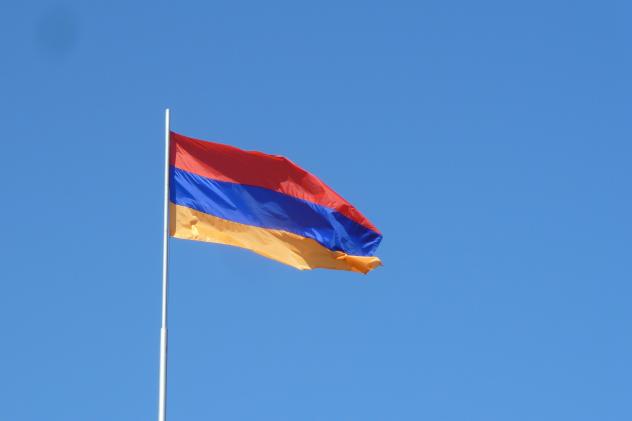On April 24, 1915, 200 wealthy Ottoman Armenian intellectuals were arrested and promptly executed on the orders of Talat Pasha, who was then the de facto ruler of the Ottoman Empire. What followed was a bloody attempt at the complete extermination of the Armenian population in Turkey that saw the deaths of over 1.5 million innocent men, women, and children. This horrible stain on human history was later called the Armenian Genocide: the first mass genocide of the 20th century.
While the Armenian Genocide was major news during its time, it has since been relegated to an obscure footnote in history. This has, in part, been due to the Turkish government’s efforts to undermine and cover up the Genocide. To this day, for fear of the consequences they would face, Turkey continues to deny the mass killings of Armenians were an act of genocide. And because of this, the Turkish government has used their strategic military position and economic weight to blackmail countries, particularly in the West, into not recognizing the genocide and obscuring the facts about the event. For example, countries like the United Kingdom, China, and India have all denied that the genocide occurred by removing mentions of it from their school curricula in order to protect their military and economic interests in Turkey.
While some think the trade-off of denying events like these in order to secure economic or military gains is worth it, the truth is that it is extremely dangerous. When a country denies that a genocide happened and refuses to teach the facts, they rob future generations of that information, meaning that they will be ignorant on the matter. As these generations grow up, they will create societies that are extremely prone to committing the same atrocities that their ancestors did before them. Further, by denying that a genocide took place, these countries are sending a message to dictators that they will be able to get away with genocide because no one will remember it. In fact, in Hittler’s 1939 Olberzalsburg speech, he said, “After all, who remembers the Armenians?” in order to quell the fears of some of his generals that there would be international condemnation for what they were about to do to the Jews.
Today, the results of decades of denial and obscurement have been made abundantly clear by Azerbaijan’s recent actions towards Armenia and Nagorno Karabakh (or Artsakh). In the latter half of 2020, Armenia and Azerbaijan fought a bloody war over the self-governing breakaway region of Artsakh which saw the deaths of thousands of people. After the war ended, multiple reports were released about Azeri troops’ committing acts of ethnic cleansing and war crimes on Armenians. For example, multiple Armenian churches and graveyards have been destroyed in an attempt to remove any presence of Armenians from Artsakh. Azeri soldiers have on multiple occasions gone into recently captured Armenian villages and massacred the remaining villagers, usually the elderly and the disabled, in order to rid the land of Armenians. Furthermore, in order to intimidate the remaining Armenian population who are currently protected by Russian peacekeepers, Azeri troops have routinely committed mass executions of Armenian POWs and have shot randomly at Armenian villagers. Since they received little to no backlash on these actions, they decided to take it one step further and put the Armenians of Artsakh under blockade. Starting on December 12, 2022, Azeri-backed protesters blocked the only road connecting Armenia and Artsakh, thus stopping all movement on the road. The blockade has created a lack of supplies and has led to a dire situation within Artsakh where food is scarce, medicine is a luxury and gas for light and heating is hard to come by. Through these actions, Azeri leadership has made it obvious that they are committing a second Armenian Genocide through massacring, freezing, and starving the people of Artsakh.
One might ask, “Why does Azerbaijan want to commit genocide, which is morally deplorable?” The simple answer is because they can. By denying the Armenian Genocide and removing it from our school curriculum, we [the international community] have created a society that is completely oblivious to this event and thus allowed others to repeat it. Through our denial, we have shown Azerbaijan that they can just get away with it because, after all, if we didn’t remember the Armenians the first time, who will remember them this time?
If we want to stop genocides like the upcoming one in Artsakh from happening in the future, then we must remember the ones that happened before them, like the Armenian Genocide. Through increasing awareness, we can learn about the warning signs of an impending genocide and stop it in its tracks. We can learn about how our trusted intuitions can be used against a certain group and make laws to prevent atrocities. Remembrance can help us better understand the roles of fear and peer pressure in genocides and teach us how to overcome them. But most importantly, through remembrance, we won’t be doomed to repeat these horrendous mass killings ever again. So, for the sake of our future, let us remember the Armenian Genocide.







